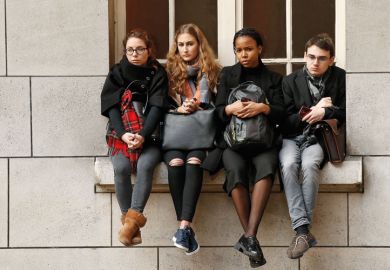The French education minister has announced plans to create a unique digital database for degree qualifications, which aims to simplify the task of verifying job candidates’ academic ability to employers and to save a significant amount of government money.
Najat Vallaud-Belkacem, the minister of national education, higher education and research, made the announcement at Bett 2016, the international trade show for digital technology in education, which she attended as part of an official visit to London.
Innovation should not “end on the ministry’s doorstep”, Ms Vallaud-Belkacem said. “We’re continuing to digitally modernise the way the ministry…is run. As such, we’re launching a digital service unique in Europe: one which certifies any French…higher education qualification, and this will be up and running at some point in 2016.”
The digital certification service will supply proof for all state-issued national qualifications, which confer degree status, from the past 15 years. Degree holders will be able to pass on their qualifications data to employers in secure and authentic digital form.
Currently, an official degree certificate on watermarked paper can be issued to its holder only once; after that, only proof of the qualification can be obtained. Every year, 80,000 requests for proof of qualifications are made; handling them costs French authorities a great deal of time and money.
At the same time, the use of proofs of qualification during job interviews is not thought to be reliable. A communiqué released alongside Ms Vallaud-Belkacem’s announcement said that a private study carried out on behalf of recruitment agencies had shown that 30 per cent of degree data on CVs was either inaccurate or misleading.
By guaranteeing the authenticity of the degrees, it is hoped that the new service will combat fraud during job recruitment. It will also automate requests made to the authorities, saving time and money.
Initially, it is hoped that the database will hold data on 500,000 higher education qualifications and 1.6 million from secondary level issued at the end of the 2016-17 academic year. The service will then be rolled out to cover the past decade and a half, with 25 million qualifications covered.
Register to continue
Why register?
- Registration is free and only takes a moment
- Once registered, you can read 3 articles a month
- Sign up for our newsletter
Subscribe
Or subscribe for unlimited access to:
- Unlimited access to news, views, insights & reviews
- Digital editions
- Digital access to THE’s university and college rankings analysis
Already registered or a current subscriber? Login





